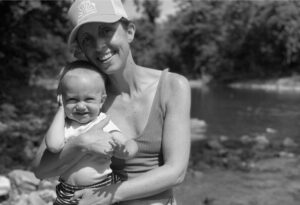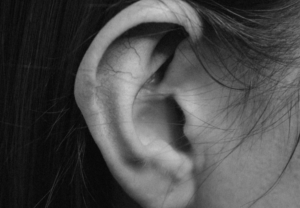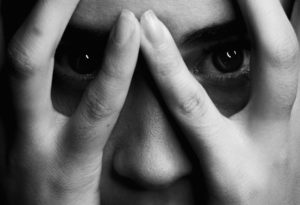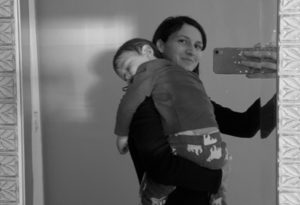
Recently my four year old son has begun expressing his negative emotions in ways that are different from his younger, toddler self. The tantrums and tears are fewer these days, and in their place are verbal expressions of his frustrations (“I can’t do it!” and “I’ll never do it!”), threatening to throw and kick things, and the occasional follow through on those impulses. This change coincides with his natural development, and his temperament as a very physically capable child. Unfortunately, I think it’s also his way of expressing his discomfort with the tension between my husband and me as we navigate a difficult chapter in our marriage. Our son doesn’t witness any verbal or physical conflict. But like most children, he is totally dialed in to changes in how my husband and I relate to each other, stretches of time where we don’t talk much to each other, bickering that is on the brink of a full-blown argument, and the general mood of the household from moment to moment.
I started to feel pretty lousy about all this, and turned to what I usually turn to when I feel lousy about things – books. I purchased “The Feelings Series” by Trace Moroney, a set of ten books, each dedicated to a particular emotion, like anger, jealousy, disappointment, happiness, kindness, and love. To my surprise (and some heartache), I discovered my son asking again and again to read the books about feeling sad and feeling nervous. At first I read them to him, and for him, when he asked. But then I found myself suggesting these books whenever we read together because they offered me comfort. They helped to normalize the feelings I often have shame about, particularly anger. They also placed me in a frame of mind for recognizing the emotions behind my darker moments, which at 38 years old, even I have difficulty pinpointing when I’m in the thick of it. Most importantly, they have led to conversations with my son about how he feels when my husband and I aren’t getting along. Painful, but invaluable conversations about how it makes him nervous and how he wants it to stop. He has also internalized some of the lessons from the books when he sees me out of sorts. At one point when I was visibly upset about something that had happened in our household, he came to me later and said “everyone gets angry sometimes. I can help you feel better” and he came over and gave me a hug from behind. This to me was an incredibly bittersweet moment. On the one hand, I was moved by my son’s display of care and affection. On the other hand, I felt uncomfortable with him seeing me so upset and I worried he felt too responsible for helping me feel better. In the end, I concluded that while it’s not helpful to my son to see me often falling apart in anger or disappointment, I am human and that will happen from time to time. If I allow it to turn into a moment of reconnection and reconciliation, then that can enrich our lives.
That got me thinking about other books that my son and I enjoy, but that we glean different things from. Wemberly Worried by Kevin Henkes is an affectionate nod to that part in each and every one of us that is prone to catastrophic thinking and chronic worry. I gather my son loves the story because of the concise, comforting dialogue and colorful illustrations that Henkes is so well known for. I love it for those reasons, too, but it holds a special place in my heart because it often makes me feel more compassionate and less angry at my anxiety-prone spouse. Even better, I now have a gentle and funny tool in my arsenal to ground my husband during his anxious moments. When he’s getting carried away, I’ll tease and say “You’re having a Wemberly moment, aren’t you?” When it lands right, it works like a charm. Both he and my son think it’s funny.
Another book that comes to mind is Dr. Seuss’ I Had Trouble In Getting To Solla Sollew. In typical Seuss-fashion, there are fabulous rhymes and psychedelic illustrations, enough to keep very young children engaged through a rather long tale. A deeper wisdom also emerges about human nature, politics, and society. This story hits right at the heart of the human tendency to think that avoiding all of life’s troubles will bring peace. Dr. Seuss brilliantly makes the case that, wherever you are, there you will be, and that unless a person changes their perspective on life and its attendant challenges, troubles will follow you wherever you go. Or to put it in therapy-speak, “geographical” solutions usually don’t work. Reading Solla Sollew has the effect of shrinking whatever grievance I’m lugging around with me that day from an overbearing mountain into a manageable molehill.
Many of us book lovers have a running list of the books we cherish from our youth. For me, it was Curious George, The Giving Tree and Where the Sidewalk Ends, The Babysitter’s Club Series, and Little Women (and Little Men, but less so). As with so many things about becoming a parent, I was pleasantly surprised to find that children’s stories would continue to become part of my treasured literary heritage. Thank you, authors, illustrators, and books, for all the beauty, adventure, wisdom, and solace you give us.
Photography by Mark Zamora




